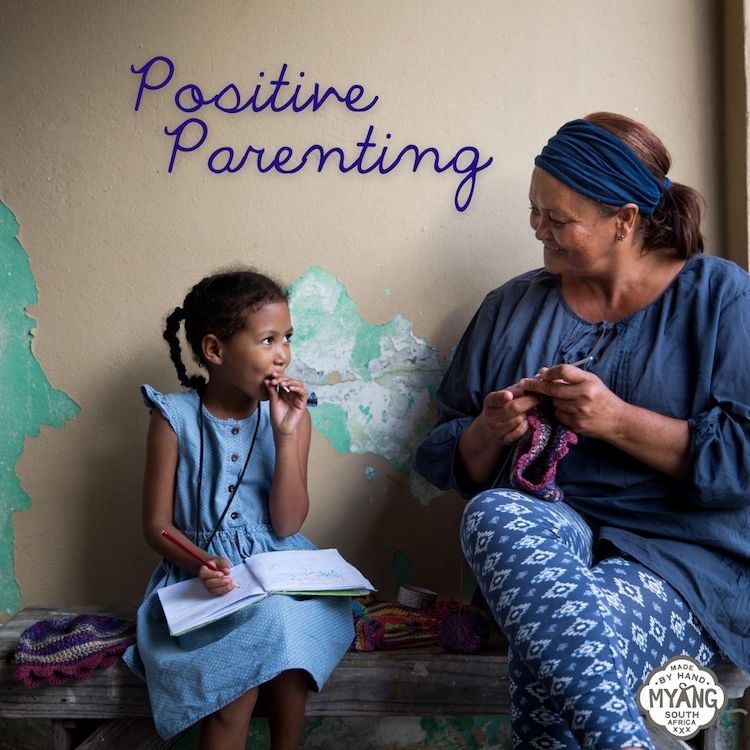
Positive Parenting: Top 10 Things You Should Never Say to Children
Positive parenting is about caring, teaching, leading, communicating, and providing for the needs of a child consistently and unconditionally. An insightful 2022 Parenting.com article unpacks ten phrases parents commonly say to their children that could actually be doing unknown psychological or emotional harm.
- You’re fine (dismissive)
When your child gets hurt or scared and bursts into tears, your instinct will be to reassure them that they're not badly hurt. But simply telling them that they’re fine and to brush it off could make them feel worse or unseen. They’re crying in response to the situation and your job is to help them understand and deal with their emotions – not discount them.
Try hugging your child instead and acknowledge what they're feeling by saying things like "That was a scary fall". Validate their feelings and acknowledge the experience. Then you can (positively) let them know that they are okay. A good way to wrap up this interaction: Ask whether they want a plaster or a kiss (or both!).
- Well done!
Research has shown that saying generic phrases like "Good boy!" or "Well done!" every time your child shows skill makes them dependent on your affirmations instead of their own motivation.
Save the high praise for when it’s truly warranted, and try to be very specific if you can. Instead of saying "Great game!" you could say, “That was a nice pass. I like how you looked for your teammate."
- Practice makes perfect
It's true that the more time your child devotes to their pursuits, the sharper their skills will become. But this adage can increase the pressure they feel to excel. It sends the message that if they make mistakes, they didn’t learn or practice enough.
Instead, encourage your child to work hard because they will get better at it and feel proud of their progress as they improve their skills.
- I’m on a diet
If you’re watching your weight, try keeping your efforts to yourself as far as your little ones go. If your child sees you stepping on the scale daily and hears you talking about how miserable you feel about being overweight, they could develop an unhealthy body image.
- Hurry up!
You’re going to get annoyed when your child dawdles over their breakfast, insists on tying their own school shoes at snail pace, and ultimately makes themselves late for school (again). But pushing them to try move through their routine faster only creates additional stress.
Instead, soften your tone slightly and say, "Let's hurry.” This sends the message that you two are on the same team.
- Be careful
If your child is playing on a Jungle Gym and you’re worried, saying “Be careful” can often make your child more likely to hurt themselves, as they become distracted from what they’re doing. This kind of tension and fear is not something you want to instill in your child during play, especially if they’re trying something new.
Instead, when feeling anxious, quietly move closer so you can catch them should they take a tumble and congratulate them if they make it through without incident.
- Don’t talk to strangers
It might seem simple enough to an adult, but this is tough for a young child to grasp. An unfamiliar person may not be thought of as a stranger if they are nice. A child may take this rule the wrong way - resisting the help of police officers or firefighters, for example.
Bring up scenarios, like "What would you do if a man you don't know offers you candy and a ride home?" instead of warning them about strangers. Have them explain what they'd do. Once you know how they might handle a situation like that, you can guide them to the proper course of action.
- We can’t afford it
Your child begs for the latest toy, and you whip out this standard response. Unfortunately, doing so sends the message that you're not in control of YOUR finances, which can be a scary thought for them and create instability.
Choose an alternative way to convey the same idea. "We're not going to buy that because we're saving for more important things”. If they want to discuss it, you have a perfect opportunity to start teaching them about budgeting and managing money properly.
- Let me help you
When your child is struggling to do something, like finish a puzzle, your wanting to give them a hand is only natural. Unfortunately, if you jump in too soon you could be undermining your child's independence.
Instead, ask questions to help guide them solve the problem: "Do you think this piece goes here or over there? Why do you think that? Let's give it a try."
- No pudding until after supper
Was this one used on you as a child? Using this expression increases your child’s perceived value of the pudding, and diminishes their enjoyment of the food itself.
Tweak your message along these lines: "First we eat our supper and then we have pudding”. The subtle wording change has a far more positive impact on your child.
